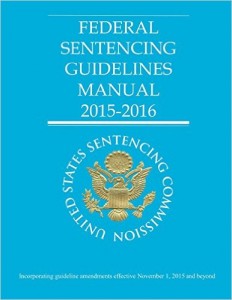Dean v. United States
U.S. Supreme Court
No. 15-9260
Decided April 3, 2017
Issue: Whether Section 924(c) prevents the sentencing court from considering the mandatory minimum sentence imposed under 924(c) when calculating the appropriate sentence for the predicate offense.
Holding: The U.S. Supreme Court held that a sentencing judge is not required to ignore the fact that the defendant will serve a mandatory minimum sentence under 924(c) because there is nothing in the language of 924(c) that prohibits a judge from considering mandatory minimums when imposing additional sentences for predicate offenses. The language of 924(c), rather, only requires that a judge imposes the mandatory minimum in addition to the sentence imposed for the predicate offense(s) regardless of the judge’s decision to consider the length of the mandatory sentence when imposing the consecutive sentence for the predicate offense.
Facts: Dean and his brother robbed a methamphetamine dealer and then, two weeks later, they robbed another dealer at his home. Dean’s brother threatened the victim of each robbery with a semiautomatic rifle and later used the rifle to hit the victim over the head. Meanwhile, Dean ransacked the area for drugs, money and valuables.
Dean was charged with one count of conspiracy to commit robbery, two counts of robbery, one count of possessing a firearm as a convicted felon, and two counts of possessing and aiding and abetting the possession of a firearm in furtherance of a crime of violence under 18 U.S.C. 2 and 924(c). The two convictions under 924(c) forced Dean into a 30-year minimum sentence in addition to imposed sentences for the remainder of the convictions which each ranged from 84 to 105 month under the Sentencing Guidelines.
Dean argued that the court should consider his lengthy mandatory sentence when calculating the remaining sentences and impose a concurrent one-day sentence on the grounds that Dean was not the leader of the crimes and that he had no significant history of violence. The judge agreed that Dean’s proposed sentence was sufficient, but stated that he was required to disregard the mandatory minimum sentence when determining sentences for the other counts. Dean received a total sentence of 400 months.
Analysis: 18 USC 924(c) provides that possessing a firearm during the course of a violent or drug trafficking offense carries a mandatory minimum sentence of five years for the first conviction and 25 years for a second. These sentences must run consecutive to the sentence for the underlying or predicate offense. Because Dean committed two offenses under 924(c), he was required to serve a mandatory 30 years in prison in addition to the imposed sentence for the underlying felonies.
 The U.S. Supreme Court recognizes that sentencing courts have long exercised discretion in determining appropriate sentences. Under Title 18 3553(a), the factors courts are to consider in imposing sentences are just punishment, deterrence, protection of the public, and rehabilitation. The sentencing court is also instructed to consider the nature and circumstances of the offense as well as history and characteristics of the defendant.
The U.S. Supreme Court recognizes that sentencing courts have long exercised discretion in determining appropriate sentences. Under Title 18 3553(a), the factors courts are to consider in imposing sentences are just punishment, deterrence, protection of the public, and rehabilitation. The sentencing court is also instructed to consider the nature and circumstances of the offense as well as history and characteristics of the defendant.
Considering the fact that Dean would be over 50 years old upon his release (having committed the crime at a young age of 23), the Supreme Court determined that it would be difficult for a court to ignore whether a sentence beyond the minimum of 30 years is necessary to protect the public. The Government, on the other hand, contended that the district courts are meant to calculate appropriate sentences for each offense separately and without regard to other imposed sentences and that the court should only consider the effect of other sentences when deciding whether to run consecutive or concurrent sentences.
The U.S. Supreme Court held that nothing in the law requires such an approach as asserted by the Government. In fact, the Court pointed out that the Government’s assertion contradicts its own practice in “sentence package cases” in which the Government typically urges appellate courts to consider vacated convictions (where some but not all convictions were vacated) and impose harsher sentences on the remaining charge(s) by taking into consideration the vacated convictions. Greenlaw v. United States, 554 U.S. 237, 253 (2008); United States v. Smith, 756 F. 3d 1179, 1188-1189.
Two limitations in 924 the Government urged the U.S. Supreme Court to consider were that (1) a mandatory sentence under 924(c) must be imposed “in addition to the punishment” of the predicate conviction and that (2) “no term of imprisonment imposed on a personshall run concurrently with any other term of imprisonment imposed on the person, including any term of imprisonment imposed for the predicate crime” As concluded by the Court, neither of these limitations under 924(c) say anything about the length of the sentence of the predicate offense nor do they mention what a judge should or shouldn’t consider in determining the sentence. There is nothing in the statute that would prohibit a judge from imposing a one-day concurrent sentence for the violent or drug trafficking offense along with the mandatory minimum sentence.


